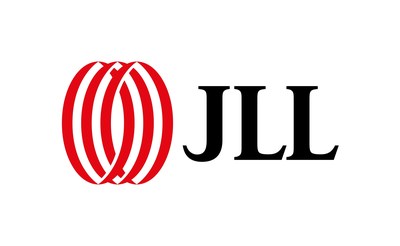From value creation to value preservation - real estate investors rethink the "value of green"
JLL released a report titled 'Return on Sustainability', emphasizing the shift in how sustainability impacts real estate value. The report highlights that buildings meeting sustainability standards enjoy 6% rent and 7.6% sales premiums, while non-compliant properties face 'brown discounts'. Key findings from a survey indicate that 83% of occupiers see climate risk as financial risk, and 79% believe carbon reduction will be vital by 2025. The urgency for sustainability is underlined, calling for actions to avoid asset stranding and promote health-focused spaces.
- Green-certified buildings yield a 6% rent premium and 7.6% sales premium.
- 83% of occupiers consider climate risk a financial risk.
- 79% of occupiers plan to incorporate carbon emissions reduction in their strategies by 2025.
- Buildings failing to meet sustainability standards may incur a brown discount.
Insights
Analyzing...
CHICAGO, Jan. 11, 2022 /PRNewswire/ -- Expectations for new buildings – from amenities to environmental footprint – have increased significantly in recent years. Sustainability continues to move up the corporate priority list and investors are rethinking value, making the threat of a "brown discount" more real than ever.
A new report by JLL (NYSE: JLL), "Return on Sustainability: How the 'value of green' conversation is growing up," highlights the urgency for investors to move beyond the conversation around the "value of green" to instead focus on the long-term return on sustainability. The paper explores a step-change at play around what qualifies a best-in-class building.
"The bar is being raised on what it means to be green," explained JLL's Global Head of Sustainability Services and ESG, Guy Grainger. "Now that the business case for sustainability is undeniable, the time has come to evolve the valuation conversation."
There is a strong financial incentive to go green
While investors initially doubted the value of certifications like LEED and BREEAM, evidence now shows that green certifications result in a rent premium of
The definition of green is evolving
New dimensions are quickly emerging to influence the value conversation. Climate risk and resilience, carbon emissions and occupant health are increasingly contributing to conversations around what it means to be "best-in-class" in the built environment.
JLL's April 2021 survey of nearly 1,000 executives, investors and corporate occupiers found that:
83% of occupiers and78% of investors believe climate risk is financial risk.79% of occupiers anticipate that carbon emissions reduction will be part of their corporate sustainability strategy by 2025.42% of occupiers believe that their employees will increasingly demand green and healthy spaces.
Sustainability and wellness-focused certification systems will need to adapt to meet this new moment. Up until now, a highly rated, green-certified building hasn't necessarily been a building with the lowest carbon footprint. Certification standards will soon change as LEED, BREEAM and others launch new carbon-centric benchmarks, defining carbon footprint and incorporating additional elements in the calculation. As investors and companies make environmental and social commitments, they will increasingly need to consider their real estate portfolio to meet climate goals.
Time is of the essence. According to the Paris Agreement, to avoid the worst impacts from climate change on the global economy, emissions must be reduced
Find out more by downloading the JLL report "Return on Sustainability: How the 'value of green' conversation is growing up" at https://www.us.jll.com/en/trends-and-insights/research/return-on-sustainability.
About JLL
JLL (NYSE: JLL) is a leading professional services firm that specializes in real estate and investment management. JLL shapes the future of real estate for a better world by using the most advanced technology to create rewarding opportunities, amazing spaces and sustainable real estate solutions for our clients, our people and our communities. JLL is a Fortune 500 company with annual revenue of
Connect with us
https://www.linkedin.com/company/jll
https://www.facebook.com/jll
https://twitter.com/jll
https://www.instagram.com/jll
Contact: Gayle Kantro
Phone: +1 312 228 2795
Email: Gayle.Kantro@am.jll.com
![]() View original content to download multimedia:https://www.prnewswire.com/news-releases/from-value-creation-to-value-preservation--real-estate-investors-rethink-the-value-of-green-301457570.html
View original content to download multimedia:https://www.prnewswire.com/news-releases/from-value-creation-to-value-preservation--real-estate-investors-rethink-the-value-of-green-301457570.html
SOURCE JLL








